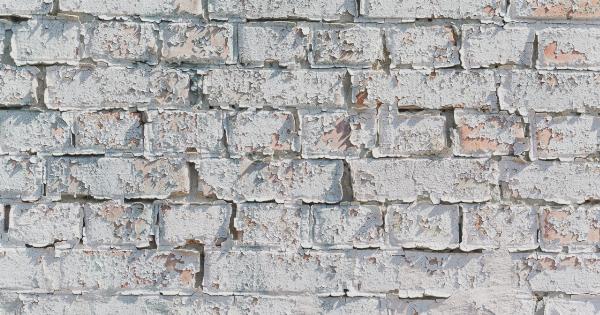The ileum is a vital part of the small intestine that plays a crucial role in digestion and nutrient absorption.
When the ileum becomes damaged or blocked, immediate treatment is necessary to prevent further complications and ensure proper functioning of the digestive system. In this article, we will discuss why immediate treatment for ileum is necessary.
Understanding the Ileum
The ileum is the final segment of the small intestine, extending from the jejunum to the large intestine. It is responsible for absorbing nutrients, vitamins, and minerals from food and transferring waste products to the large intestine for elimination.
The ileum has a unique structure that helps in its functioning, such as numerous small finger-like projections called villi that increase the surface area for nutrient absorption.
Common Causes of Ileum Problems
Several factors can lead to problems with the ileum, including:.
- Intestinal obstruction: A blockage in the ileum can be caused by various conditions like tumors, adhesions, hernias, or inflammatory bowel diseases.
- Inflammation: Conditions like Crohn’s disease and ulcerative colitis can cause chronic inflammation in the ileum, leading to narrowing and scarring of the intestinal walls.
- Infections: Certain bacterial or viral infections can affect the ileum, leading to diarrhea, abdominal pain, and inflammation.
- Intestinal ischemia: Reduced blood flow to the ileum can result in tissue damage and impaired functioning.
Importance of Immediate Treatment
Immediate treatment for ileum problems is crucial due to the following reasons:.
Preventing Complications
Without prompt treatment, ileum problems can lead to severe complications such as:.
- Bowel obstruction: A complete blockage in the ileum can result in the accumulation of intestinal contents, leading to severe pain, vomiting, and potentially life-threatening complications.
- Malabsorption: The damaged or inflamed ileum is unable to absorb nutrients properly, leading to malnutrition, deficiencies, and weight loss.
- Intestinal perforation: Untreated inflammation in the ileum can cause the intestinal walls to weaken and eventually perforate, allowing bacteria and waste products to leak into the abdominal cavity, leading to a serious condition called peritonitis.
Restoring Digestive Function
The ileum plays a vital role in the digestion and absorption of nutrients. Immediate treatment can help restore the proper functioning of the ileum, allowing for optimal digestion and absorption of essential nutrients.
Without treatment, the inability of the ileum to effectively absorb nutrients can lead to long-term digestive issues and nutritional deficiencies.
Alleviating Symptoms
Ileum problems can cause various distressing symptoms such as abdominal pain, diarrhea, bloating, and cramping. Timely treatment can help alleviate these symptoms, improving the overall quality of life for individuals experiencing ileum problems.
Treatment Options for Ileum Problems
The treatment approach for ileum problems depends on the underlying cause and severity of the condition. Some common treatment options include:.
- Medications: Anti-inflammatory drugs, immune system suppressors, antibiotics, or medications to control diarrhea may be prescribed, depending on the specific condition and symptoms.
- Surgery: In cases of severe blockage, perforation, or other complications, surgical intervention may be required to repair or remove the damaged segment of the ileum.
- Dietary modifications: Making dietary changes, such as avoiding certain foods that trigger symptoms or following a low-fiber diet, may help manage ileum problems.
- Lifestyle changes: Quitting smoking, managing stress levels, and incorporating regular exercise can contribute to overall intestinal health.
Conclusion
The immediate treatment for ileum problems is essential to prevent complications, restore digestive function, and alleviate symptoms.
Seeking medical attention and following the prescribed treatment plan can significantly improve the outcomes for individuals with ileum issues. If you experience any symptoms or suspect problems with your ileum, consult a healthcare professional for proper evaluation and timely intervention.






























